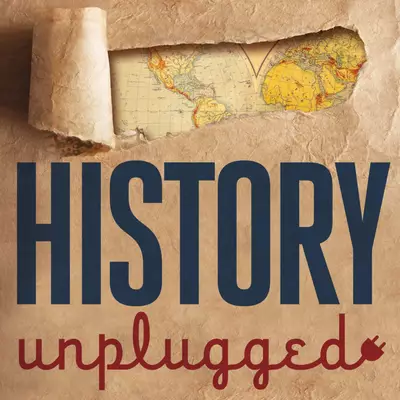Listen on Your Favorite App
4 Foreign Correspondents Spent the 30s Warning About European Fascism. Why Didn't More Listen?
June 02, 2022
00:00
47:57
Listen on Your Favorite App
In the 1930s, the biggest American media celebrities were four foreign correspondents: Dorothy Thompson, John Gunther, H.R. Knickerbocker, and Vincent Sheehan. They were household names in their heyday, as famous as their novel-writing Lost Generation counterparts, F. Scott Fitzgerald and Ernest Hemingway. They helped shape what Americans knew about the world between the two World Wars by landing exclusive interviews with the epic political figures of their day, including Hitler, Mussolini, and Franco, as well as Trotsky, Gandhi, Nehru, Churchill, and FDR. But they also went beyond state press releases and listened closely to dissidents in European nations and heard alarming reports of violence against these authoritarian regimes. And they made waves at home and abroad.
H.R. Knickerbocker was the only foreign reporter whose dispatches Mussolini bothered to read. Goebbels called Knickerbocker an “international liar and counterfeiter.” John Gunther shot to fame with the book Inside Europe (1936), arguing that “unresolved personal conflicts in the lives of various European politicians may contribute to the collapse of our civilization.”
These reporters warned their readers that the dictators wouldn’t be satisfied with the territories they conquered. They vehemently objected to policies of appeasement, and they predicted the coming of the Second World War, putting together the stories they covered—the Italian invasion of Ethiopia in 1935, the Spanish Civil War that broke out the next year, the 1938 German annexation of Austria, and the carve-up of Czechoslovakia in the Munich Agreement—to make startlingly accurate judgments about what would come next.
The story of these four journalists – and how they changed the news media irrevocably – is told by today’s guest Deborah Cohen, author of Last Call at the Hotel Imperial: The Reporters Who Took on a World at War. We see how these figures told the major stories of the day as reporters but also shaped them as opinion columnists and book authors. Contests over objectivity in the media aren’t new to the 21st century but age-old. These conflicts about taking sides heated up to a boiling point in the 1930s. Were reporters eyewitnesses or advocates? How far should they go in trying to shape public opinion? We’ll get into all that and more in this episode.
H.R. Knickerbocker was the only foreign reporter whose dispatches Mussolini bothered to read. Goebbels called Knickerbocker an “international liar and counterfeiter.” John Gunther shot to fame with the book Inside Europe (1936), arguing that “unresolved personal conflicts in the lives of various European politicians may contribute to the collapse of our civilization.”
These reporters warned their readers that the dictators wouldn’t be satisfied with the territories they conquered. They vehemently objected to policies of appeasement, and they predicted the coming of the Second World War, putting together the stories they covered—the Italian invasion of Ethiopia in 1935, the Spanish Civil War that broke out the next year, the 1938 German annexation of Austria, and the carve-up of Czechoslovakia in the Munich Agreement—to make startlingly accurate judgments about what would come next.
The story of these four journalists – and how they changed the news media irrevocably – is told by today’s guest Deborah Cohen, author of Last Call at the Hotel Imperial: The Reporters Who Took on a World at War. We see how these figures told the major stories of the day as reporters but also shaped them as opinion columnists and book authors. Contests over objectivity in the media aren’t new to the 21st century but age-old. These conflicts about taking sides heated up to a boiling point in the 1930s. Were reporters eyewitnesses or advocates? How far should they go in trying to shape public opinion? We’ll get into all that and more in this episode.
See omnystudio.com/listener for privacy information.
More Episodes
See all episodes
Meet Your Host

Scott Rank is the host of the History Unplugged Podcast and a PhD in history who specialized in the Ottoman Empire and modern Turkey. Before going down the academic route he worked as a journalist in Istanbul. He has written 12 history books on topics ranging from lost Bronze Age civilizations to the Age of Discovery. Some of his books include The Age of Illumination: Science, Technology, and Reason in the Middle Ages and History’s 9 Most Insane Rulers.. Learn more about him by going to scottrankphd.com.
